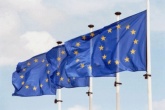FOE Europe calls for renewed ambition in CEP
Friends of the Earth Europe (FOEE) has called for the European Commission (EC) to ramp up the ambition of its upcoming Circular Economy Package, after a leaked draft implied that expected measures have been watered down.
An initial package, designed to usher in more resource-efficient practices across the European Union, was withdrawn in December last year. Though the withdrawal was widely criticised by environmentalists and the resource industry, the EC claimed that a new ‘broader, and more ambitious approach’ would be developed.
After a number of consultations, the refreshed package is expected to be published on 2 December, though some reports have suggested that the full package will not be released on this date.
FOEE warns of stripped down package
FOEE claims to have seen a leaked package, however, and says that it ‘looks likely to fall short in delivering the solid foundations required to transition to a true circular economy’, explaining that the package’s proposed voluntary measures could be ‘easily ignored’.
The group, a network of 30 national Friends of the Earth organisations that campaign on environmental and social issues, has released an analysis of the leaked draft, which could still be changed before the final package is released, as well as two cartoons mocking European Commission Vice-President Frans Timmermans for the lack of ambition it claims the draft shows.

In particular, FOEE highlights the absence of measures on resource efficiency and European consumption of natural resources.
By scrapping a resource productivity headline target and indicator, FOEE suggests, the package is being retabled as an economic, rather than environmental, piece of legislation.
The organisation also warns that this focus could lead to the dropping of food waste and marine litter targets, the reduction of recycling targets and the allowance for member states to use technical, environmental or economic reasons for not collecting biowaste. It does accept, however, that the leaked draft includes improvements in clarity, more specific measures on waste prevention and the promotion of reuse and repair.
Action plan
The leaked draft was accompanied by an action plan that contains 52 action points that will all be initiated prior to 2019. These actions come under seven areas:
- production
- consumption
- waste management
- market for secondary raw materials
- priority areas (plastics, food waste, critical raw materials, construction and demolition waste, biomass and bio-based products)
- innovation and investments
- monitoring
Among the action points are measures that could open up the Ecodesign Directive to include material efficiency, the development of core indicators for the assessment of the lifecycle environmental performance of a building and measures on cascading biomass and coherence between the circular economy and the bioeconomy.
These actions are designed to create a roadmap for realising a more circular economy, but FOEE ‘fears that given their open, flexible language and non-binding nature, many of these actions may fall off the wayside or not be implemented in the best way possible’. Indeed, it notes that many of the actions included have previously been used in other areas by the EC.
FOEE recommendations

Among the headline targets that has been associated with the package throughout the refreshed package’s development are targets of 70 per cent for the recycling for municipal solid waste and 80 per cent for packaging waste, both by 2030.
These targets are not specified in the leaked draft, with member states given a choice between 65 and 70 per cent by 2030. There is also the additional possibility for some member states to request an extra five years to reach the target.
FOEE is calling for the recycling target to be kept at 70 per cent by 2030, using one clear methodology for all member states. It also says that overall packaging recycling targets of 80 per cent and a plastic recycling target of at least 75 per cent are needed to realise the intended ambition.
The analysis outlines a number of other measures that could be added to make the package live up to its ambitious billing. These include:
- a binding EU material reduction target based on the total material consumption indicator;
- harmonised measurement methodologies and binding reduction targets for land, water and carbon footprints;
- a zero residual waste target by 2025;
- separate preparing for reuse targets (at the moment these are combined with recycling targets);
- the design out of single-use, non-recyclable products and toxic materials;
- the promotion of economic instruments that support full implementation of the waste hierarchy, for example extended producer responsibility, pay-as-you-throw schemes; and
- binding food waste reduction target of at least 30 per cent by 2025
‘Increasingly economic agenda’ overshadowing environmental concerns
Meadhbh Bolger, Resource Use Campaigner at Friends of the Earth Europe, said: “We were promised more ambition to tackle Europe’s overconsumption crisis, but it seems that First Vice-President Timmermans is trying to convince us that less is more.
“A raft of voluntary, non-binding proposals that can be easily ignored will not succeed in paving the way to a true circular economy. The European Commission must take clear and decisive steps to slash our resource use and ensure that environmental concerns are not over-shadowed by an increasingly economic agenda.”
The full FOEE analysis is available at the organisation’s website.










